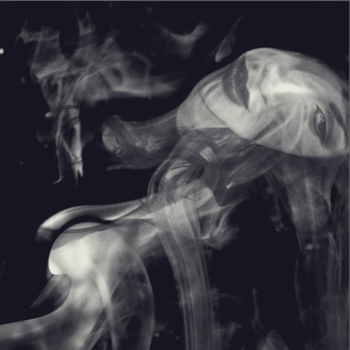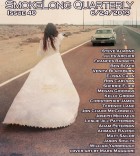Tell me about the beginnings of this story.
I love flash fiction, how close the language can be to poetry. I also love comic and dark side by side. Originally, I’d been interested in writing a story in which the fantastic appeared within the everyday. Alex felt like such a static character, and I’d wondered if the introduction of something otherworldly and strange could create a change in him. A kind of tabloid story. But in writing about this relationship between the narrator and Alex, it became more about the ways they are able to see each other. Seeing and being seen.
How did this story evolve over time?
I began to pay more attention to Alex. Of course he’s stuck in adolescence, but I didn’t want to reduce him to one note. He’s got his poetry disdain, his rules, his porn obsession. But he sees the narrator in a way that creates an enduring longing. What does he see? Even when praising her literary work, he’s dismissive of it—it’s all a ploy to get her back. It doesn’t matter what she’s become or done—she could be a lion tamer, mountain cyclist, even a clerk again in the store where they met. When Alex and the narrator speak on the phone, and she’s hoarse, recovering from the flu, Alex says, “I can hear the core of you.” The relationship is impossible, but there’s a clear-sighted seeing of something at the core.
There is a precise kind of human connection here—the moment when the threesome is mentioned, when Alex and the narrator date, later on during the radio show. Tell me more about this connection, the way layers of communication meet here.
The connection between the narrator and Alex is primarily, maybe exclusively, physical. When Alex first sees her, his first impulse/action is to ask his girlfriend for the threesome. Denied, he breaks up with her, and returns to the store to ask out the narrator. His confidence, approval, steady gaze are in opposition to the narrator’s ungrounded shakiness. Alex’s masculinity is a relief. This purely physical connection, which originally seemed a limitation, is what allows Alex a kind of seeing that is beyond not only the narrator, but also the temporal world.
If you could tell the narrator one thing, what would it be? Why?
After taking the radio talk show bait, the narrator feels foolish. Instead of promoting her book, she’s promoted as an ex-girlfriend. Alex tries to reel her through time, back to him. She’s confessed her loneliness to herself, and of course, it’s a good part of why she calls him. I would tell her that his approval, love, is fine, a distant gift. But she doesn’t need it to find the ground beneath her feet.



 The core workshop of SmokeLong Fitness is all in writing, so you can take part from anywhere at anytime. We are excited about creating a supportive, consistent and structured environment for flash writers to work on their craft in a community. We are thrilled and proud to say that our workshop participants have won, placed, or been listed in every major flash competition. Community works.
The core workshop of SmokeLong Fitness is all in writing, so you can take part from anywhere at anytime. We are excited about creating a supportive, consistent and structured environment for flash writers to work on their craft in a community. We are thrilled and proud to say that our workshop participants have won, placed, or been listed in every major flash competition. Community works.